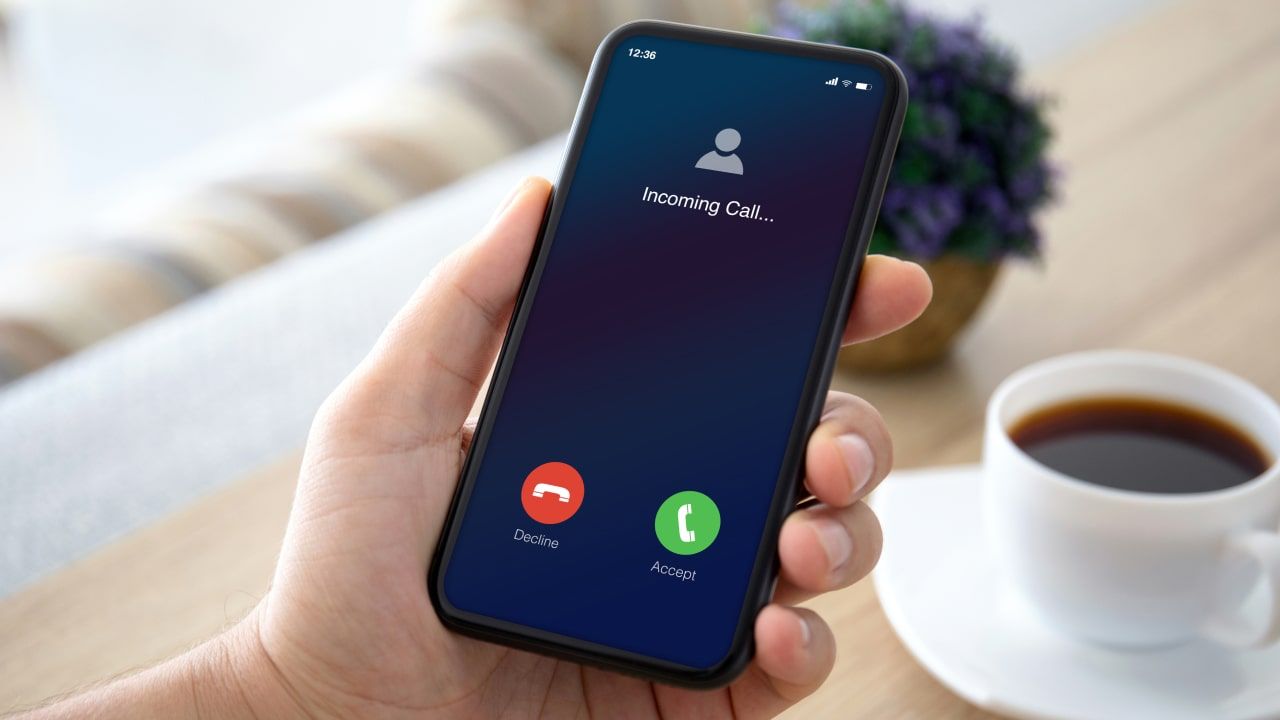What is a Phone Screen Interview? Tips and Example Questions
By Julian Lewis • April 1, 2024

Introduction: Understanding the Phone Screen Interview
The phone screen interview is often the first step in the hiring process, serving as a critical filter between a pile of resumes and the more in-depth face-to-face interviews that follow. But what exactly is a phone screening interview, and why is it so pivotal for both employers and job seekers?
What is a Phone Screening Interview?
A phone screening interview is a preliminary interview conducted over the phone to assess whether candidates are qualified and suitable to proceed to the next stages of the hiring process. Typically brief, these conversations allow recruiters to verify details about the candidate's background, gauge their interest in the position, and evaluate their communication skills and suitability for the job environment.
The Purpose and Value for Employers and Job Seekers
For employers, the phone screen is a cost-effective method to narrow down the applicant pool without the commitments of time and resources required for in-person interviews. It helps the hiring team focus their efforts on candidates who best fit the job description and company culture, saving time in the long run and increasing the quality of interviewees who proceed to the next interview round.
For job seekers, this initial interaction is just as crucial. It's their first real opportunity to impress upon the employer their enthusiasm and fit for the role. Moreover, it's a moment to gather more details about the job and the company, helping them decide if they wish to continue pursuing the opportunity.
By understanding and preparing for the nuances of phone screening interviews, candidates can significantly enhance their chances of moving forward in the interview process, and hiring teams can efficiently identify the best potential hires.
Join our Newsletter
Transform your career with our personal growth insights. Get one valuable tip right in your inbox every Saturday morning.
The Basics of Phone Screening
Understanding the fundamentals of a phone screening interview can significantly streamline the hiring process and clarify what both parties can expect during this initial contact.
What Is A Phone Screening?
A phone screening—often the first conversational touchpoint between a candidate and a company—is a brief, preliminary interview designed to assess the suitability of the candidate for the role. Unlike more in-depth interviews, it focuses on basic qualifications, work experience, and logistical considerations such as salary expectations and availability.
How are Phone Screen Interviews Different from Phone Interviews?
While both phone screen interviews and phone interviews are conducted over the telephone, their purposes differ significantly. A phone screen is generally shorter and more focused on filtering candidates quickly based on essential criteria. In contrast, a phone interview can be longer and involves more detailed questions that delve into the candidate's competencies and suitability for the position. Phone screenings aim to narrow down the pool of applicants, while phone interviews are often a step closer to a final interview, providing a deeper understanding of the candidate's qualifications and fit for the role.
Key Differences in Interview Formats
Navigating different interview formats can be perplexing. Here, we explain the distinctions between phone and video interviews, as well as between on-demand and scheduled phone screens.
Phone Interview Vs. Video Interview
Phone interviews and video interviews both serve as tools for remote assessment, but they cater to different sensory interactions. Phone interviews involve voice-only communication and primarily assess a candidate's verbal clarity and responsiveness. They require strong telephone etiquette and the ability to convey enthusiasm and professionalism through voice alone. Video interviews, on the other hand, add visual cues to the mix, allowing both parties to communicate non-verbally. This format is closer to traditional in-person interviews and necessitates a professional appearance, setting, and body language.
On-demand Interviews Vs. Scheduled Phone Screens
On-demand interviews are pre-recorded scenarios where candidates respond to a set of interview questions at their convenience. This format tests how well a candidate can prepare responses and present themselves without real-time interaction. Scheduled phone screens involve live conversation and are used to quickly determine if there is enough alignment in candidate qualifications and job requirements to move forward. They require candidates to think on their feet and build rapport in real-time, offering a dynamic assessment of their suitability for the role.

Preparing for a Phone Screen
Success in phone screenings is not just about answering questions; it's about presenting yourself as the ideal candidate from the very first call. Here’s how to prepare and excel in these preliminary interviews.
Phone Interview Tips
- Research the Company: Understand their industry, mission, and recent news to tailor your answers and show genuine interest.
- Practice Common Questions: Prepare structured answers for typical phone interview questions but keep them concise.
- Set Up Your Environment: Choose a quiet, comfortable place to take the call. Use a good-quality headset or speakerphone to ensure clear audio.
- Test Technology: If the call includes any digital platform (like VoIP), test your equipment and internet connection beforehand.
How to Nail a Phone Screen Interview
- Be Concise and Focused: Phone screens are brief, usually 15-30 minutes, so keep your answers succinct and relevant.
- Listen Carefully: Pay close attention to the interviewer’s questions and any comments about what the company seeks in a candidate.
- Prepare Smart Questions: Have insightful questions ready to demonstrate your understanding of the role and your interest in the company.
- Follow Up: Send a thank-you email summarizing key points discussed and reiterating your interest. This can reinforce your candidacy and show your professionalism.
By meticulously preparing for your phone screen interview, you can ensure that your qualifications and enthusiasm resonate with the hiring team, paving the way to the next interview stage.
Common Topics Covered During Phone Screens
Phone screens are a crucial step in the interview process, allowing employers to gauge a candidate's fit through a series of targeted questions. Here are some common topics and types of questions you might encounter.
Typical Questions Asked During Phone Screening
- Tell me about yourself. This open-ended question is a chance to succinctly present your professional narrative.
- Why are you interested in this role? Demonstrate your knowledge of the role and how it aligns with your career goals.
- What are your strengths and weaknesses? Be honest but strategic; highlight strengths that are pertinent to the job and weaknesses that are manageable.
- Can you explain the gaps in your employment? Prepare a positive explanation for any noticeable gaps in your resume.
Describe Your Current Job and Responsibilities
When asked to describe your current job, focus on duties and responsibilities that relate to the new position. Emphasize any achievements or skills learned that make you a valuable candidate for the potential job, showing your direct impact on your current company.
What Is Important for You When You Join the Next Company?
This question seeks to understand your career priorities and how they align with what the company can offer. Discuss aspects like company culture, career progression opportunities, and other factors that are crucial to your job satisfaction and professional growth.
By preparing for these common topics, you ensure that you're not just responding to questions but are engaging in a conversation that highlights your best professional self.

Deep Dive: Typical Phone Screen Questions
To effectively prepare for a phone screen interview, it's essential to anticipate the types of questions that might be asked. These questions are designed not just to vet candidates quickly but to gauge how well they might integrate into the company culture and meet the job requirements.
Examples of Phone Screen Interview Questions
- What motivated you to apply for this position? Aim to connect your professional skills and personal ambitions with the company's goals.
- How do your skills and past experiences make you a suitable candidate for this job? Highlight specific skills and experiences that align with the job description.
- What are your salary expectations? Be honest but also flexible; make sure you've done your research on typical industry salaries.
- Where do you see yourself in five years? Show that your career goals align with the trajectory of the company.
Screening Questions to Expect
- Can you work under pressure? Provide examples that demonstrate your ability to handle stress effectively.
- How do you prioritize your work? This is to assess your organizational skills and efficiency.
- What do you know about our company? This tests your interest in the position and whether you've done your homework.
- Why should we hire you? Summarize your key attributes and what makes you stand out from other candidates.
Understanding these questions and preparing thoughtful, concise responses can significantly enhance your performance in a phone screen interview. Each answer should not only respond directly to the question but also pivot to highlight your strengths and suitability for the role.
Join our Newsletter
Transform your career with our personal growth insights. Get one valuable tip right in your inbox every Saturday morning.
Discussing Career Aspirations and Fit
During a phone screen, interviewers often explore a candidate's long-term career aspirations and how they align with the company’s opportunities. Addressing these effectively can set you apart as a forward-thinking and motivated candidate.
What Are Your Passions and Interests?
Expressing your passions and interests helps the interviewer gauge your fit for the company culture and the role. Be genuine and link your personal interests to the skills and values important to the position. For instance, if you're passionate about technology and innovation, illustrate how this aligns with the company’s projects and goals.
Salary Expectations and Career Progression
Clear communication about your salary expectations and understanding of career progression within the company are pivotal. Outline your expected salary range based on industry standards and your experience. Additionally, discuss your career trajectory and how you see yourself growing with the company, reinforcing your commitment and suitability for long-term success.

Evaluating a Candidate’s Fit and Interest
Assessing a candidate's suitability involves more than just reviewing their qualifications. It includes understanding their enthusiasm and readiness for the role, which can be discerned through careful preparation and attentive interaction during the phone screen.
Read Their Resume Carefully Before the Interview
A hiring manager must meticulously review a candidate’s resume prior to the phone interview. This preparation allows the interviewer to ask pointed questions that delve deeper into the candidate’s experiences and achievements, facilitating a more productive and informative conversation. It also signals to the candidate that the company values their potential contribution and has dedicated time to understand their background.
Absence of Questions as a Red Flag
If a candidate doesn’t ask questions, it often suggests a lack of interest or preparation, which can be a critical red flag. Questions not only indicate that a candidate is thinking critically about their role and the company but also show their enthusiasm for the opportunity. An engaged candidate will usually inquire about company culture, specific job duties, or future projects, demonstrating their investment in the process.
Additional Considerations in Phone Screenings
Phone screenings are pivotal in the recruitment process, serving various purposes and utilizing different formats depending on the role and company requirements. Here, we delve into when video interviews come into play and what phone screenings signify for job seekers.
Video Interviews: When They Come Into Play
Video interviews are often used as a step between phone screenings and in-person interviews. They come into play especially for roles that require a visual presentation or for remote positions where face-to-face meetings are impractical. This format allows the employer to assess a candidate’s professional demeanor, body language, and environment, providing deeper insights that a phone call cannot offer. It's also beneficial for the candidate, who can express personality and professionalism more fully than over the phone.
The Meaning of a Phone Screen Interview for Job Seekers
For job seekers, a phone screen interview is not just a preliminary hurdle; it’s an opportunity to make a strong first impression and to gauge the company's fit for their career aspirations. This early interaction hints at the company's hiring culture and the potential longevity of the role offered. It is a chance for candidates to demonstrate their qualifications, articulate their professional goals, and show their enthusiasm for the position.

Conclusion: Mastering the Phone Screen Interview
As we conclude our guide to phone screen interviews, it's important to recap what makes these initial conversations so pivotal and how you can optimize your performance to advance to the next stages of the hiring process.
Recap of Phone Screening Fundamentals
Phone screen interviews are designed to efficiently filter candidates before deeper engagement through face-to-face or detailed video interviews. These screenings ensure that only the most promising candidates—who are well-aligned with the job's requirements and the company's culture—are moved forward. Remember, the main focus of a phone screen is to evaluate basic qualifications, communication skills, and potential cultural fit.
Final Tips and Strategies for Success
To excel in a phone screen interview:
- Stay Prepared: Review the job description, your resume, and prepare concise answers to common screening questions.
- Listen Actively: Demonstrate your attentiveness by listening carefully and responding directly to the interviewer's inquiries.
- Engage Thoughtfully: Ask intelligent questions that show you have done your homework and are genuinely interested in the role and the company.
- Remain Professional and Upbeat: Maintain a positive demeanor throughout the call; your voice and attitude can be as telling as your answers.
By mastering these elements, you can not only succeed in your next phone screen but also set a strong foundation for the subsequent rounds of interviews.
Read more about: Job Search, Professional Development, Employee Experience
About Julian Lewis
Julian Lewis is a driven and accomplished professional with a passion for driving positive change in the business world. He is the co-founder and COO at Zella Life.
His own experience as a professional of color in a Fortune 500 company led him to discover the limitations for advancement that many professionals like himself face. Determined to reach his full potential, Julian became an established business coach and entrepreneur, committed to supporting others in their pursuit of personal and professional growth.
Today, Julian is a recognized corporate trainer, coach, and leader, known for his ability to leverage real-life experiences and evidence-based methodologies to affect positive change within individuals and organizations. As the leader of Zella Life's coaching division, he is dedicated to empowering individuals and businesses to achieve their full potential.